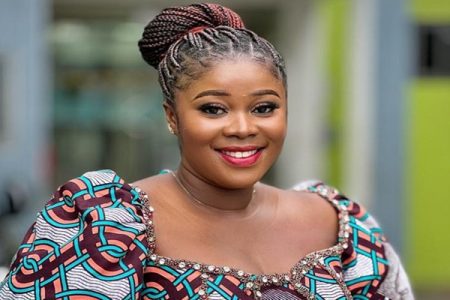Over the past decade, Nigeria’s creative industry has evolved into a global powerhouse, especially in the music and film sectors. From Grammy-nominated Afrobeats stars to Nollywood films on global streaming platforms, Nigeria’s cultural exports have captivated the world.
Their success is no accident—it is the result of a deliberate, structured approach to building a creative economy.
Nigeria’s music industry, particularly its flagship sound Afrobeats, has grown into a global cultural force.
What was once a regional genre is now streamed on global platforms, played in top clubs, and featured in global festivals.
This meteoric rise didn’t happen by chance—it is the result of a combination of strategic efforts by artists, industry players, and government institutions.
Nollywood, Nigeria’s film industry, on the other hand has grown into the second-largest film industry in the world in terms of volume, producing over 2,500 films annually.
From humble beginnings in the early 1990s, Nollywood has become a multi-billion-dollar sector and a major cultural export across Africa and beyond.
According to estimate from Business Day Nigeria, in 2021 alone, Nollywood employed 300,000 persons.
A situation which is expected to have more than quadrupled by the end of 2025 according to jobbermanprojections.
Deliberate steps were taken to achieve this success.
The content of movies resonated with local and regional audiences because they featured African faces and relatable storylines, they addressed themes like family, spirituality, politics, and urban life and they used indigenous languages and Pidgin English for mass appeal.
Ghana, a nation equally blessed with rich cultural heritage and artistic talent, has every opportunity to rise to similar prominence.
Yet, despite flashes of brilliance, we have not sustained the momentum needed to position ourselves as a creative leader on the African continent.
The time has come to learn from our neighbours—not merely to copy, but to adopt what works and build a strategy that works for us.
These are some pointers we could look at;
Match Policy with Purposeful Investment
One of the biggest drivers of Nigeria’s creative boom has been real financial investment—backed by government initiatives like the Project ACT Nollywood Fund and strategic partnerships.
Though late, public policy began to support Nollywood: The Project Nollywood Fund by the Bank of Industry offered grants for production and capacity building. Nigeria’s Creative Industry Finance Initiative backed training and production.
The National Film and Video Censors Board (NFVCB) began regulation to improve content standards. In music, the government has instituted and implemented initiatives that have further championed the growth of the industry.
The Nigeria Creative Industry Development Bill for instance,aims to formalize and support entertainment sector funding.
If the Ghana entertainment industry will grow and compete on the global stage, government must be deliberate in supporting with practical policies.
The arts is not cheap. According to Ghanaian Filmmaker, Peter Sedufia in an interview with Channel One TV, it cost him nothing less than $200,000 to produce his Aloe Vera movie which eventually ended up on Netflix, featured at global film festivals and won several awards.
Ghana needs a Creative Industries Fund to support content creators across sectors—film, music, fashion, theatre, and digital arts.
This must be complemented by tax incentives to attract private sector investment into the creative space.
Build the right infrastructure
Ghanaian creators often lack access to the tools and spaces needed to produce high-quality work.
We need creative hubs—well-equipped spaces with sound studios, editing suites, rehearsal spaces, cinema halls and stages.
Accra, Kumasi, and Takoradi could become creative corridors if we commit to public-private partnerships that support infrastructure development in the arts.
It is painful to admit that, as a nation that prides itself as a promoter of the creative arts, the National Theatre remains the only ideal facility for live performances be it theatre or musical concerts in the country.
The National Theatre of Ghana is in a very sorry state and lacks many functional equipment, not to talk about state of the art. Infrastructural development could begin with the very institutions meant to train creatives like the completion of the Arts Complex of the School of Performing Arts, University of Ghana which has been under construction for over 15 years.
Develop and protect talent
While Ghana boasts of immense talent, the industry lacks structured support for growth.
Perhaps due to our perception of the arts.
We must integrate creative arts into our educational system, from primary schools to universities.
Additionally, we should partner with global institutions for mentorship and exchange programmes.
There must beavenues for graduates of music, acting, directing, etc to practice right after school under the National Service Scheme.
In Nigeria platforms like Mavin Records, Chocolate City, and Empire Africa have created professional structures for talent grooming and global distribution.
Nigeria’s strategic collaborations is one sure way of tapping into the expertise of Hollywood and gain exposure.
Wizkid’s “Essence”, featuring Tems and Justin Bieber and Davido’s collaboration with Chris Brown and Nicki Minaj are just a few examples.
Although few Ghanaian musicians have been successful with international collaboration, there must be a deliberate move to do more.
Nollywood today is collaborating with South Africa, Hollywood and Bollywood to produce movies.
Equally important is the enforcement of intellectual property rights to protect the hard work of our creatives.
The Ghana Music Rights Organisation (GHAMRO), the Musicians Union of Ghana (MISIGA) and the Ghana Actors Guild must be better resourced to carry out their mandate.
Go digital—globally
Nigerian artists understand how to use digital and global platforms to their advantage.
Ghanaians must be trained and supported to do the same.
We need to help our creators understand digital algorithms, trends, and viral marketing.
Our content must be created with the global audience in mind, without losing our authenticity.
In leveraging digital platforms and global distribution, Nigerian artists have aggressively utilized platforms such as YouTube, Spotify, Apple Music, Audiomack, Instagram and TikTok. According to the IFPI Global Music Report 2023, sub-Saharan Africa was the fastest-growing region globally, with Nigeria leading the way, driven largely by streaming.
The IFPI 2023 report further states that, in 2022, Nigeria accounted for 66% of sub-Saharan Africa’s total music streaming revenue.
Nigerian songs like CKay’s “Love Nwantiti” became global sensations largely through TikTok trends.
Today, Nigerian film companies like EbonyLife, Inkblot, and FilmOne are internationally recognized.
The shift from DVD to digital was crucial.
Platforms like iROKOtv, YouTube, and later Netflix provided global access.
In 2015, Netflix began acquiring Nollywood content.
By 2020, it commissioned Nigerian originals with YouTube becoming a distribution outlet for diaspora audiences, growing revenue through ads and partnerships.
Ghana must make a deliberate attempt to create more Stonebwoys, Joe Mettles, Black Sherrifs, Sarkodies, ShattaWales, Sparrow Productions and OldFilms Productions to flood the digital space with Ghanaian content for an appreciable global representation.
Promote national pride in the arts
To grow the creative industry, we must shift mindsets.
The arts are not just a pastime; they are a profession.
Schools, media, and families must encourage children who want to become filmmakers, dancers, or musicians.
Nigeria has succeeded in using Nollywood as a powerful tool for promoting their stories, values and identity globally.
National campaigns celebrating our arts and artists can create an environment of respect and support.
The Lagos Theatre Festival celebrates Nigerian heritage, languages, dance, music and theatre, drawing attention to the country’s rich artistic traditions.
Ghana can boast of creatives who have risen to occupy high offices of the land.
The likes of Efua T. Sutherland, Abla Dzifa Gomashie, Fritz Baffoe, John Dumelo are but a few examples to help change the mindset of parents who still discourage their wards from pursuing careers in the arts; looking down on and referring to the arts as ‘Dondology’ is quite primitive.
Define a Ghanaian creative identity
Just as Afrobeats became a powerful global identity for Nigeria, Ghana can build a distinct creative brand rooted in our unique rhythms, fashion, languages, and storytelling.
Our “December in GH” campaign is an excellent platform.
Let’s expand it to include more cultural showcases, international collaborations, and deliberate positioning of Ghana as West Africa’s cultural capital.
The Nigerian music and movie industries in appealing to their audiences both home and abroad remain authentic by incorporating local languages (Yoruba, Igbo, Pidgin English), traditional rhythms, and storytelling in their works.
This authenticity creates a unique and exportable cultural product.
Ghana’s Highlife Music is an heirloom. We have a duty to protect and develop it and bequeath to generations to come. We have not done so well with Highlife.
There must be a deliberate effort to encourage young and new musicians to infuse highlife into their works.
Some Ghanaian young musicians are unable to breakthrough because they sound like their Nigerian counterparts making it difficult to brand their works with true and indigenous Ghanaian identity.
We need to bring back our MOGOs and Highlife Festivals to revive our taste and love for Highlife Music.
In summary
There is no shortcut to creative success.
It requires vision, commitment, and strategic investment.
Ghana must support its creative sector not only with words but with real resources and respect.
The time to act is now. Governments must move beyond campaign promises and take the creative arts as seriously as any other sector.
Our creative arts is our surest and best comparative advantage. Only Ghanaians can best tell the Ghanaian story.
Therefore, our music, like Osibisa’s “Woyaya”, Nana Kwame Ampadu’s “Oman Bo Adwo” and our storytelling, like Kwaw Ansah’s “Heritage Africa” among others must remind us of how we used to do it yester years and be motivated to do much more today.
The world is watching Africa. Let’s ensure that when they look our way, they see Ghana’s light shining just as brightly.
By Frema Adunyame
- How one man’s CV defeated the Conservatives in Canadian elections - 4 May 2025
- How Ghana can grow its creative industry the Nigerian way - 4 May 2025
- JM, touch not the annointed - 3 May 2025

